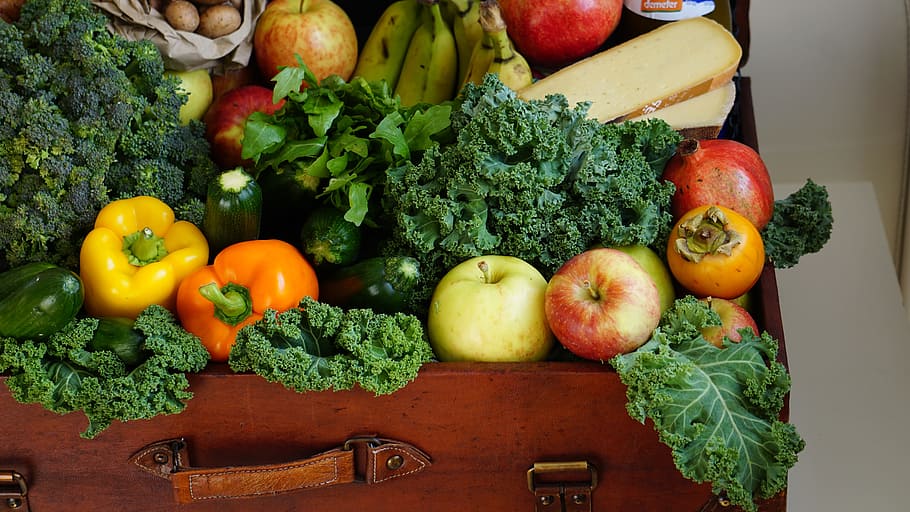
Discover the Most Sustainable Foods for a Greener Lifestyle
By Evert Heijns | May 2, 2023
Have you ever wondered what the most sustainable foods are?
It’s a question that more and more people are asking as they become increasingly conscious of their environmental impact.
We all want to do our part in preserving the planet, but we also need to make sure that what we’re eating is healthy and nutritious!
This article will explore some of the best options for creating a diet that meets both criteria – one that is good for us, and good for the environment.
Eating sustainably doesn’t have to mean sacrificing flavor or nutrition either; it simply means choosing products with minimal waste, produced in an eco-friendly manner.
From nutrient-rich grains to delicious fruits and vegetables, there are plenty of ways to get your essential nutrients while still reducing your carbon footprint.
Read on to learn about some of the most popular sustainable food choices available today!
Eat This To Save The World! The Most Sustainable Foods – From Seaweed To Venison
Eating sustainably has become increasingly important in recent years.
As consumers, we can make a positive impact on the environment by choosing foods produced using organic farming practices, wild foraged ingredients, sustainable fisheries and renewable energy sources.
By selecting these items, we’re actively reducing our carbon footprint and protecting the planet one bite at a time.
Organic fruits and vegetables are grown without synthetic chemicals like pesticides or fertilizers while also avoiding genetically modified organisms (GMOs).
Wild foraging is another popular way to enjoy fresh produce from forests or wilderness areas that have been sustainably harvested with minimal disruption to habitats.
Sustainable fishing refers to methods designed not only to ensure healthy fish stocks but also protect their delicate ecosystems.
Finally, renewable energy sources such as solar power or wind turbines help offset any emissions created during food manufacturing processes so meals can be enjoyed both guilt-free and climate neutral.
The journey towards an eco-friendly diet doesn’t end here; there’s still grass-fed beef and lamb which offers leaner cuts of meat packed with nutrients that may even benefit your health as well as the environment!
Grass-Fed Beef And Lamb
As far as sustainable foods go, nothing quite compares to grass-fed beef and lamb.
It is truly a culinary masterpiece that can be enjoyed with peace of mind knowing it has been responsibly produced using organic farming methods that promote animal welfare and pasture raising.
The flavor is so rich and succulent, you may even forget about its meat alternative counterparts!
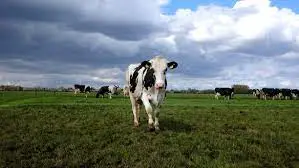
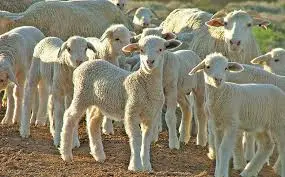
Not only does consuming grass-fed beef and lamb offer an unparalleled level of taste satisfaction, but it also helps to reduce the environmental impacts associated with conventional protein sources by encouraging seasonal eating practices.
Simply put, this type of food production offers a perfect balance for those who want to enjoy delicious meals without compromising on sustainability.
And speaking of balancing flavors and textures…
Oats
Oats are a delicious and sustainable food that is packed with nutrients. Rich in protein, dietary fiber, vitamins, minerals, and omega-6 fatty acids, oats are one of the most nutrient-dense grains available.
They can be eaten as a hot cereal or used to make pancakes and muffins; they also work well in salads and quinoa dishes.
To get the maximum health benefits from oats, look for organic varieties that have been grown without pesticides or chemical fertilizers.
In addition to being healthy, oats are versatile and pair nicely with other sustainable ingredients.
Add grass fed milk for extra calcium or top your oatmeal bowl off with some sun dried tomatoes for an extra vitamin boost.

For those looking for dairy free options, yogurt made from nut milks such as almond or cashew works great too.
Quinoa salads also benefit from adding high-fiber oats as it helps to keep you fuller longer.
Sustainability goes beyond just what we put into our bodies – it’s also about where our foods comes from.
Oats can easily be sourced locally at farmers markets throughout the year so you know exactly where your food is coming from!
And when paired with a variety of fresh vegetables like cabbage, carrots, kale and more – creating delectable meals that pack a punch nutritiously is easy!
Locally Grown Vegetables
Many people may be skeptical of locally grown vegetables due to the cost, but with sustainable agriculture, it’s possible to get a bounty of fresh produce without breaking the bank.
Organic farming methods ensure that you not only have access to healthy food, but also support the local economy and environment.
With zero waste cooking techniques and eco-friendly packaging options, farm-to-table eating can become part of your regular lifestyle.

By choosing to visit farmers markets or join CSA programs instead of relying on grocery stores for all your needs, you’re taking an active approach in supporting sustainable practices while still enjoying delicious meals.
Plus, getting creative in the kitchen can help reduce food waste while creating unforgettable dishes!
Moving beyond vegetables, mussels are another sustainable option when looking for nutritious foods that don’t harm our planet’s resources.
Mussels
Mussels are a remarkable sustainable food, and their harvesting has become increasingly popular due to the numerous benefits they offer.
Not only are mussels nutrient dense but they also provide coastal preservation through aquaculture advantages.
When it comes to shellfish consumption, there are many reasons why mussels stand out as a top choice for sustainable living.
Firstly, mussels can be farmed in an environmentally friendly way that supports coastal habitats while still providing delicious sustenance.
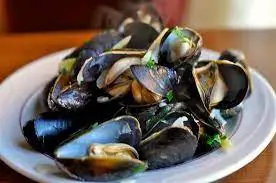
Secondly, mussel farming requires very little energy or resources compared to traditional agriculture, making them one of the most efficient forms of protein production available today.
Finally, they contain high amounts of vitamins and minerals that make them nutritionally superior over other animal sources of protein and seafood alike.
The advantages of consuming mussels on a regular basis are clear: not only is this type of seafood incredibly healthy from both environmental and nutritional perspectives but it also offers an exciting opportunity for people who want to reduce their impact on planet Earth without compromising flavor or nutrition.
From supporting coastal preservation efforts with responsible aquaculture practices to delivering essential nutrients our bodies need – here’s what you’ll get when enjoying these amazing creatures:
- Sustainable harvesting methods which protect delicate ocean ecosystems
- Nutrient dense benefits including lean proteins, omega 3 fatty acids, iron and zinc
- Shellfish consumption that reduces strain on finite resources such as land and water
- Aquaculture advantages that support local communities and bolster economic development opportunities
A diet rich in sustainable foods like mussels provides countless healthful rewards while helping us preserve nature’s precious gifts at the same time.
Moving onto pulses…
Pulses
Pulses like beans, lentils and peas are the unsung heroes of sustainable farming, often overlooked when considering a healthy and balanced diet.
They offer an abundance of nutrients that can be harvested with minimal environmental impact, allowing us to enjoy their health benefits without imposing on nature’s resources.
Legume farming has been around for centuries as part of traditional agriculture systems all over the world.
The crops require less water than other types of plants and have nitrogen-fixing capabilities, making them vital to sustainable diets and organic food production.
Pulses are also incredibly versatile in terms of flavor, texture, and culinary applications – so much more than just plain old lentils!
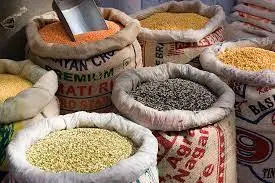
From white beans to chickpeas and fava beans, there’s something special about these little gems that make them worth exploring further.
Aquaculture farming is another way to obtain pulses while having minimal effects on natural habitats.
This method allows us to raise fish and shellfish species such as mussels alongside legumes like peas or lupines which feed off each other’s waste products for a mutually beneficial relationship.
By supporting aquaculture farmers who practice responsible harvesting techniques, we can not only reap the nutritional rewards but also create healthier marine ecosystems too.
Moving on from here…seaweed stands out as one of the most important sources of eco-friendly nutrition available today.
Seaweed
Seaweed is an incredibly sustainable food source, with a variety of benefits for the environment as well as human nutrition.
Eco farming techniques and ethical fishing practices have enabled ocean conservation while still allowing seaweed to be harvested sustainably.
Seaweed has been found to contain essential vitamins and minerals, making it an important part of many diets around the world.
One particular benefit of harvesting this amazing resource is that seaweed doesn’t require agricultural land or freshwater resources in order to grow.
This means less strain on land use and water preservation efforts – two major issues faced by humanity today.
Furthermore, seaweed can draw carbon dioxide out of the atmosphere, helping to reduce emissions associated with global warming.


By using eco-farming methods during the growth stage and following ethical fishing guidelines during harvest, we can ensure that our oceans are preserved for future generations while still enjoying all its nutritional benefits!
Not only does consuming seaweed positively impact our planet’s health, but it also provides humans with a range of health benefits such as providing vital nutrients like iodine and iron which help support cognitive development.
It may even offer some protection against chronic diseases like cancer due to its high antioxidant content.
All these factors combined make eating seaweed a great choice when looking for healthy yet sustainable foods!
The incredible sustainability of seaweed makes it one of nature’s most nutritious offerings – transitioning us nicely into exploring another sustainable protein option: venison…
Venison
Venison is like a hidden gem of sustainable foods. It’s wild-harvested, bio-dynamic, free range, and organic farming all in one package that has been around for centuries.
Here are four reasons why it should be part of your seasonal eating routine:
- Its nutritional profile makes it an ideal source of protein; venison contains more iron than beef, fewer calories and fat than chicken, and plenty of B vitamins to keep you energized throughout the day.
- Venison has no added hormones or antibiotics which can cause health problems down the line.
- You can trust where your meat is coming from as there’s full traceability on every piece of meat – meaning you know exactly how it was humanely raised and cared for before making its way onto your plate.
- As a bonus, chefs love cooking with venison because its unique flavor pairs perfectly with many dishes.
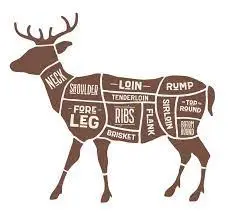
Not only does venison offer us amazing nutrition and great taste but by choosing this type of sustainable food we are also helping reduce waste as well.
This means less resources need to be used when hunting game since they will never end up going unused or wasted at the dinner table.
Plus, hunters help maintain balance in our ecosystems by controlling overpopulation and preserving habitats!
With so much to gain from venison, why not give it a try?
Waste Food
When it comes to sustainable foods, one of the best options is ‘waste’ food.
This can include fruits and vegetables that have gone past their peak freshness or that are slightly damaged but still edible.
It also includes items like grass fed pork and quinoa grain which can be used in a variety of dishes.
Another type of sustainable food is plant-based products, such as dairy free milk, wild salmon, organic honey, and many more.
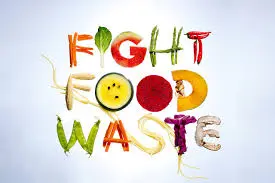
These items often require fewer resources than animal-based products and are better for the environment overall.
They also provide an array of vitamins and minerals, making them great sources of nutrition as well!
To sum up, there are plenty of ways to incorporate sustainable foods into your diet without compromising on taste or health benefits.
Waste’ food has become increasingly popular among conscious consumers who want to make a difference by reducing their environmental impact.
Plant-based alternatives offer another way to reduce waste while still getting all the necessary nutrients from healthy meals.
Frequently Asked Questions
What Is The Environmental Impact Of Consuming Grass-Fed Beef And Lamb?
Grass-fed beef and lamb are among the most environmentally friendly proteins, with research showing that it takes 28 times more land to produce a pound of grain-fed beef than grass-fed.
This makes consuming grass-fed meats a great option for those who want to reduce their environmental footprint while still enjoying the taste of quality protein.
Also, organic tofu, plant based proteins, sustainable seafood, vegan cheese and alternative grains offer equally good options when looking for ways to make meals more sustainable.
From quinoa burgers to vegan mac n’ cheese, these alternatives provide an almost endless range of delicious dishes that can be part of any meal plan without having a negative impact on the environment.
How Do I Know If My Vegetables Are Locally Grown?
If you’re looking to buy locally and sustainably, the best way is to know where your food comes from.
How do you ensure that vegetables are sourced locally?
First, look for farmers markets in your area; many of these vendors grow their produce right there on site!
For fish, make sure it’s wild-caught and harvested responsibly.
Organic eggs come from chickens fed an organic diet free of hormones or antibiotics.
Plant based proteins such as quinoa offer a host of health benefits while being sustainable.
By making mindful choices when buying your groceries, you can help create a more sustainable world by supporting local businesses and reducing environmental impact.
What Is The Nutritional Value Of Seaweed?
Seaweed is a nutrient-rich food that can provide sustainable benefits when sourced through organic farming practices.
Rich in vitamins, minerals and antioxidants, it is an excellent source of nutrition for those looking to increase their intake of plant-based proteins.
Besides that, seaweed has been linked to improved cardiovascular health due to its high levels of omega-3 fatty acids as well as its low sodium content which helps reduce blood pressure.
Furthermore, there are also safety considerations with consuming shellfish; however, if sustainably sourced from reliable suppliers then you can rest assured knowing the seafood was raised responsibly.
All in all, pulse nutrition and sustainability go hand in hand — so adding seaweed into your diet is one way to make sure you’re getting the most out of your meals!
Are There Any Health Benefits Associated With Eating Mussels?
Did you know that mussels are among the most sustainable foods available?
This shellfish is not only packed with essential vitamins and minerals, but research has shown they also contain an abundance of health benefits.
Studies have revealed that organic farming practices increase their nutritional value, as well as boost their flavor.
Additionally, grain based proteins found in mussels make them a great alternative to other animal sources.
When it comes to safety, this seafood is naturally low in contaminants making them one of the safest choices for consumption.
As far as sustainability goes, these tasty morsels offer a unique fermented food option when compared to other traditional options like beef or pork.
All things considered, eating mussels on a regular basis can be beneficial to your overall health while still being mindful of environmental impact.
Are Pulses A Good Alternative To Meat-Based Proteins?
Are pulses a good alternative to meat-based proteins? Absolutely!
For those looking to transition to a plant-based diet, legumes are an excellent option. They’re high in protein and fiber, and can be substituted for many traditional animal proteins in dishes such as tacos and burgers.
What’s more, nut butters, insect protein, wild rice, and hemp seeds are all sustainable foods that offer great sources of essential nutrients. Incorporating these into your meals is also beneficial if you’re looking to reduce your consumption of animal products while still maintaining optimal nutrition levels.
Conclusion
Eating sustainable foods is a great way to reduce our environmental impact and benefit from their nutritional value. Eating grass-fed beef, locally grown vegetables, seaweed, mussels and pulses can provide us with an array of nutritious options that are good for the planet as well as our bodies.
It’s like a win-win situation – taking care of ourselves while also reducing our footprint on the earth.
We owe it to ourselves and future generations to be mindful about what we put into our bodies and how it affects the environment around us. Adopting a more sustainable diet is one step in the right direction towards creating a healthier world for everyone – now and in the future.
